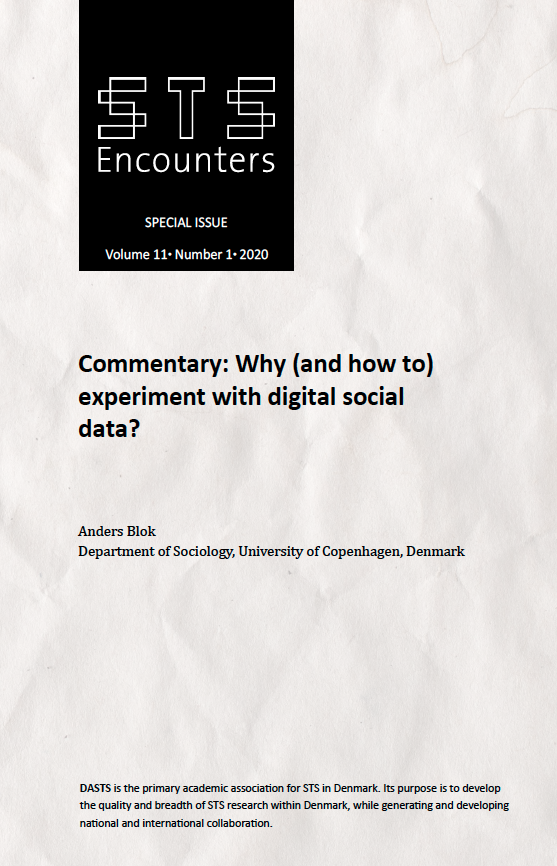Why (and how to) experiment with digital social data?
Commentary
DOI:
https://doi.org/10.7146/stse.v11i1.135277Keywords:
digital data, experimentation, intervention, pragmatism, STS-informed digital researchAbstract
critically discusses the widespread (re-)turn to the practice and rhetoric of experimentation in the realm of digital social data, big or otherwise, drawing, in part, on personal, collaborative research experiences. In doing so, the commentary positions science and technology studies (STS) as both a valuable resource for such reflection and a partisan participant in wider on-going epistemic struggles and re-alignments in the digital realm. In particular, I deploy long-standing STS resources to discuss certain well-known ambiguities around ‘the experiment’ as a genre or device of knowledge-making, and explore how such ambiguities play out in contemporary discussions over, and aspirations for, social research based on digital data. Here, while deeply sympathetic to Marres’ and allied STS-based projects for digital research, the commentary also questions some of the slippages and demarcations enacted by its circumscribed re-casting of experimental practice. These slippages, I will show, entail their own unwarranted universalization of what it means to do intervention and, by implication, experimental intervention as part of the practice of STS-informed digital research. As an alternative, I suggest that STS may want to reflect further on, and eventually differentiate more carefully between, various deployments of the practice and rhetoric of digital experimentation, including its own, to more precisely render their divergent conditions and possibilities of epistemic felicity. In doing so, however, I will also suggest that, for all its plural manifestations, STS would do well to revisit earlier pragmatist arguments by, in particular, John Dewey, in order to fully appreciate what the commentary calls the meta-experimental promise of digital social research.

Downloads
Published
How to Cite
Issue
Section
License

This work is licensed under a Creative Commons Attribution-NonCommercial-ShareAlike 4.0 International License.
Starting with volume 15, articles published in STS Encounters are licensed under Attribution-NonCommercial-ShareAlike 4.0 International (CC BY-NC-SA 4.0). The editorial board may accept other Creative Commons licenses for individual articles, if required by funding bodies e.g. the European Research Council. Previous articles are not licensed under Creative Commons. In these volumes, all rights are reserved to the authors of the articles respectively.




